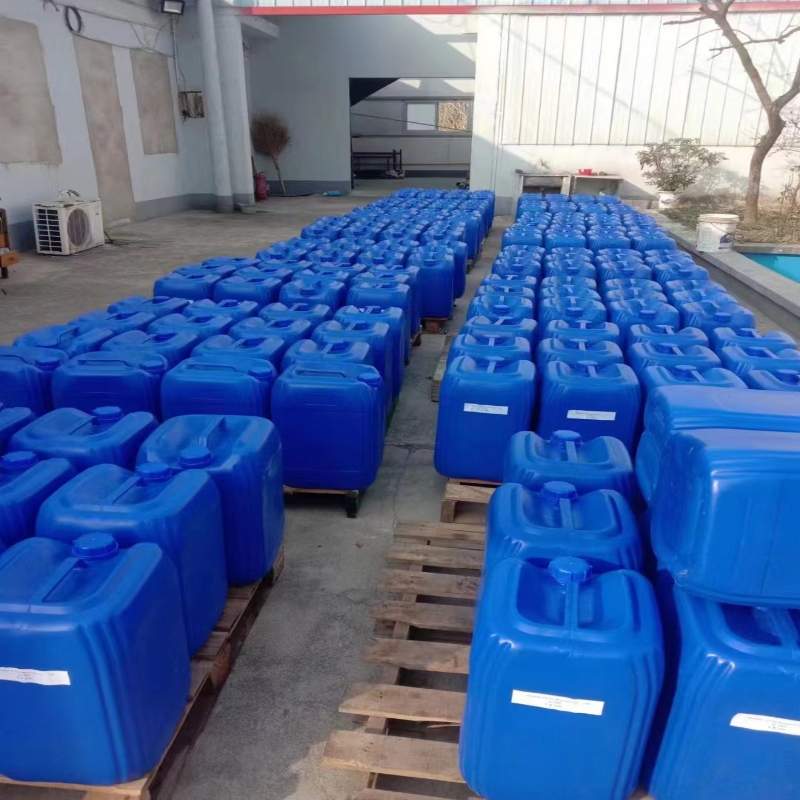-
Categories
-
Pharmaceutical Intermediates
-
Active Pharmaceutical Ingredients
-
Food Additives
- Industrial Coatings
- Agrochemicals
- Dyes and Pigments
- Surfactant
- Flavors and Fragrances
- Chemical Reagents
- Catalyst and Auxiliary
- Natural Products
- Inorganic Chemistry
-
Organic Chemistry
-
Biochemical Engineering
- Analytical Chemistry
-
Cosmetic Ingredient
- Water Treatment Chemical
-
Pharmaceutical Intermediates
Promotion
ECHEMI Mall
Wholesale
Weekly Price
Exhibition
News
-
Trade Service
The Biden administration is seeking to halt a Congressionally authorized sale of part of the Strategic Petroleum Reserve (SPR) to replenish the emergency oil reserve, a move that could affect
the sale of 147 million barrels of Strategic Reserve oil.
Previously, in order to calm inflation, the Biden administration announced the release of 1 million barrels of oil per day from May to October, a total of 180 million barrels, which also caused the US Strategic Petroleum Reserve to fall to a new low
since the mid-80s.
Bloomberg: To replenish increasingly depleted stocks, the United States seeks to stop selling strategic reserve oil
The Department of Energy is seeking to cancel or delay Congressionally authorized plans to sell strategic reserve oil between fiscal 2024 and 2027 to advance the White House's plan
to replenish the strategic oil reserve when oil prices fall back to about $70, according to the report, U.
S.
Department of Energy officials revealed at a hearing before the Senate Energy and Natural Resources Committee on December 1 。 According to data compiled by ClearView Energy Partners, an independent U.
S.
energy consultancy, Congress has authorized the sale of 147 million barrels of oil during this period, funding a number of legislative initiatives, including the sale of 35 million barrels
in fiscal year 2024.
"It is unreasonable
to release oil while we are trying to replenish the Strategic Petroleum Reserve.
" Doug MacIntyre, deputy director of the U.
S.
Department of Energy's Office of Petroleum Reserves, said at the hearing, "We cannot release reserves while replenishing them
.
" ”
With a total capacity of 714 million barrels, the U.
S.
Strategic Petroleum Reserve is the largest oil reserve program in the world, with current reserves of approximately 389 million barrels
.
In response to the energy crisis triggered by the Russia-Ukraine conflict and to control the rise in oil prices, Biden announced on March 31 that he would release 1 million barrels of oil from strategic reserves every day from May to October, for a total of 180 million barrels of strategic oil reserves
.
The U.
S.
Department of Energy announced on November 3 that it had sold 15 million barrels of oil to six companies, the last shipment of oil in this round of releases, and the delivery time is expected to be in
December.
October 2022, Strategic Petroleum Reserve (CNBC) at Freeport in the Gulf of Mexico, Texas
U.
S.
Strategic Petroleum Reserve (Bloomberg)
Although U.
S.
oil prices have fallen back to pre-conflict levels in Ukraine, the massive release of oil has also brought the U.
S.
Strategic Petroleum Reserve to its lowest level
since the mid-'80s.
At the same time, with the onset of winter and heightened market uncertainty, there is speculation that the Biden administration will accelerate action to replenish oil reserves
.
The Biden administration's large-scale release of oil reserves has also been criticized by some Republicans
.
In June, Republicans on the House Energy and Commerce Committee said declining levels of the Strategic Petroleum Reserve were becoming a national security risk
.
Rep.
Cathy McMorris Rodgers, Republican of Washington and Rep.
Fred Upton of Michigan, said in a joint statement that "the Department of Energy must maintain the nation's oil reserves, not weaken our ability to respond to
the negative effects of energy supply shortages.
" ”
The White House said in an October briefing that it would enter the market when oil prices fall below the $67 to $72 range to buy oil to replenish its strategic reserves
.
CNBC: As winter approaches, the White House may release emergency heating and crude oil reserves in the future
According to a report by the US Consumer News and Business Channel (CNBC) on November 30, the White House may be preparing for a new round of oil price surge, because with the European Union's ban on Russian oil and the G7 price limit order on Russian oil, international energy supplies may be disrupted
again.
Two senior Biden administration officials said the option to release more of the Strategic Petroleum Reserve in early 2023 remains
.
"I think we need to make sure that we take the right steps
in a prudent manner.
" Amos Hochstein, a senior White House energy adviser, said on CNBC's "Squawk Box" that the U.
S.
government's goal remains the same: "oil prices must be fair to both industry and consumers.
"
However, Chevron CEO Mike Wirth said Dec.
1 that the Biden administration's desire to replenish the Strategic Oil Reserve around $70 "is not necessarily a wise move.
"
He believes that strategic oil reserves should be replenished on a stable basis to maintain inventories at appropriate levels and avoid price risks
.







